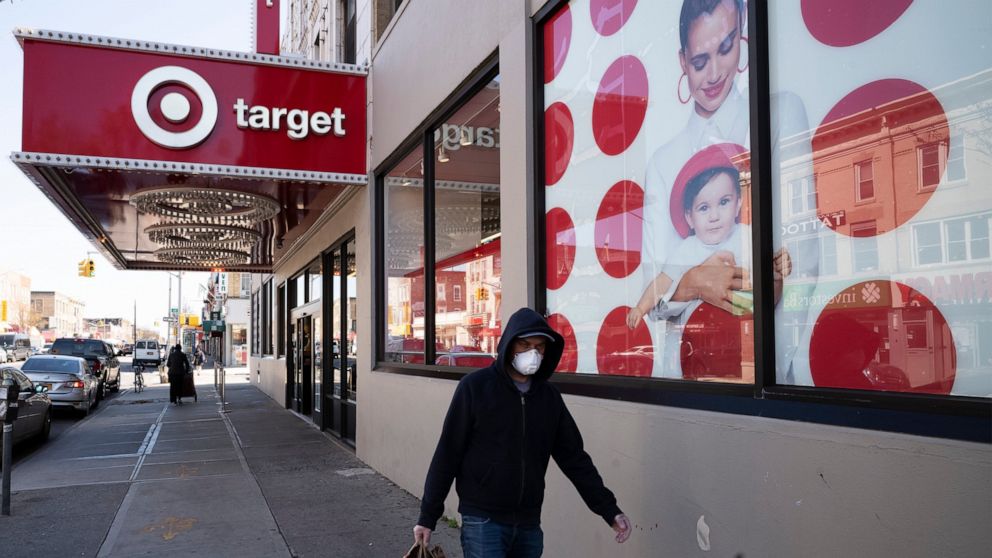Target keeps sales momentum going during pandemic
Target will plow $4 billion into its business this year to redo its stores and add new ones as well as speed up its delivery network, as the discounter aims to keep up with increasing demands of its shoppers shaped by the pandemic
NEW YORK — Target will plow $4 billion into its business this year to redo its stores and add new ones as well as speed up its delivery network, as the discounter aims to keep up with increasing demands of its shoppers shaped by the pandemic.
The investment, announced Tuesday, includes testing a “sortation center” in Minneapolis that will free up time and space for workers at its surrounding stores. Target will also accelerate the pace of building small-format stores, with plans to add 30 to 40 new stores this year, up from 29 last year. It also plans to step up the pace of its store remodel program.
The capital investment is up 50% from the previous year.
The moves come as the Minneapolis-based discounter extended its sales streak through the holiday quarter and sales grew by more than $15 billion. That exceeded the company’s annual sales growth over the past 11 years combined.
With the habits of millions altered because of the spread of COVID-19, online sales last year surged by almost $10 billion and Target made it increasingly easy to shop.
Fourth-quarter profits soared 66% and sales jumped 21%, both topping Wall Street expectations.
Sales at stores opened at least a year rose 6.9% compared with the same period last year. Online sales soared 118%. Customer traffic in stores rose 3.7%, and average dollars spent rose 15%.
In the previous quarter, same-store sales rose 10%, while online sales spiked 155%.
The Minneapolis retailer picked up $9 billion in market share from rivals in fiscal 2020.
Big-box stores including Home Depot, Lowe’s and Walmart all had huge fourth quarters with Americans still consolidating shopping trips.
Like all big-box stores, Target was allowed to stay open during the early onset of the pandemic last year, while department stores and mall-based retailers were forced to temporarily close because they were considered non-essential. That increased the dominance of Target and other discounters.
Target, which had already been expanding its delivery services before the pandemic, pushed even harder in that area. Same-day services such as picking up orders inside the store or at curbside, soared 212%, led by drive-up service, which increased more than 500%.
And its omnipresent store locations have been an advantage. More than 95% of Target’s fourth-quarter sales were fulfilled by its own stores.
Target says that shoppers who use those services are spending more. First-time users of Target’s drive-up service spent 30% more on average, the company said.
“We placed the physical store more firmly at the center of our omni-channel platform, and we created a durable sustainable and scalable business model that puts Target on a road of our own,” Target CEO Brian Cornell told analysts at its annual analyst’s’ meeting.
Target’s push starting in 2016 to build its own store brands, including Cat & Jack and Goodfellow & Co., have also pulled in shoppers. Ten of its brands each generate $1 billion or more, and four of those have crossed the $2 billion, the company said.
Overall sales in 2020 rose 19.8% to $92.4 billion, up from $77.1 billion last year.
Target has also announced a series of partnerships that should help drive more shoppers to its stores. Late last year, it signed a deal with beauty chain Ulta Beauty that will place Ulta shops in more than 100 Target stores by mid-2021.
Target said net income rose to $1.38 billion, or $2.73 per share, in the fourth quarter, from $834 million, or $1.63 per share. Adjusted results were $2.67 per share, which topped estimates of $2.54 per share, according to FactSet.
Sales rose 21% to $28 billion for the quarter. Analysts were expecting $27.4 billion.
The company did not provide a financial outlook due to uncertainty related to the pandemic. Target was among many that pulled back on guidance at the onset of the pandemic. Best Buy and Macy’s both offered outlooks when they reported earnings results last week.
Target’s shares slipped more than 3%, or $6.64 to $179.45 in late morning trading.
————————
Follow Anne D’Innocenzio on Twitter: http://twitter.com/ADInnocenzio
![]()


